S.A.F.E Elders Initiative
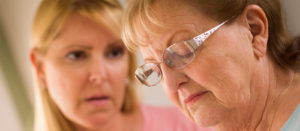 Elder abuse is a crime against elderly people. It comes in many forms and it is not always easily proven. For that reason, S.A.F.E (Stop Abuse & Financial Exploitation) is something that encourages both elderly and their families to know and understand what elderly abuse is and how to recognize when it may be happening to you.
Elder abuse is a crime against elderly people. It comes in many forms and it is not always easily proven. For that reason, S.A.F.E (Stop Abuse & Financial Exploitation) is something that encourages both elderly and their families to know and understand what elderly abuse is and how to recognize when it may be happening to you.
What is Elderly Abuse?
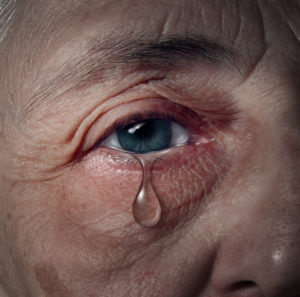 Elder abuse is the physical, mental, or financial abuse of an elderly person. It may also include neglect as it pertains to the care of an older person. It may be a single act of abuse or a repeated one where the elderly person has an established expectation of trust. The most common abusers are caregivers, nursing homes, and family members who the elderly person trusts to help them instead of hurting them.
Elder abuse is the physical, mental, or financial abuse of an elderly person. It may also include neglect as it pertains to the care of an older person. It may be a single act of abuse or a repeated one where the elderly person has an established expectation of trust. The most common abusers are caregivers, nursing homes, and family members who the elderly person trusts to help them instead of hurting them.
What is Financial Abuse?
 Financial abuse of an elderly person may take many forms. It may be a fraudulent claim that the person will take care of the older person in return for property or money and then failing to follow through. For instance, telling the elderly person that if they sign over their personal property in return for a lifelong care arrangement or the ability to spend their life living there, and then evicting them or withholding care. It may be the caregiver promising to purchase medications or something that the older person wants and then failing to do so or using the money given to not only purchase medication, but items that they will use themselves. Even something as simple as a promise to provide food for the older person and then purchasing shoes for them instead, could be a form of elder financial abuse because the elderly person handed over money with the expectation of getting one thing and received another. It may be financial abuse by someone who promises to use the elder’s money wisely and encourages the person to take out a loan or give freely of their money to receive something that they never get. Scammers are likely to attack older people with this type of promise.
Financial abuse of an elderly person may take many forms. It may be a fraudulent claim that the person will take care of the older person in return for property or money and then failing to follow through. For instance, telling the elderly person that if they sign over their personal property in return for a lifelong care arrangement or the ability to spend their life living there, and then evicting them or withholding care. It may be the caregiver promising to purchase medications or something that the older person wants and then failing to do so or using the money given to not only purchase medication, but items that they will use themselves. Even something as simple as a promise to provide food for the older person and then purchasing shoes for them instead, could be a form of elder financial abuse because the elderly person handed over money with the expectation of getting one thing and received another. It may be financial abuse by someone who promises to use the elder’s money wisely and encourages the person to take out a loan or give freely of their money to receive something that they never get. Scammers are likely to attack older people with this type of promise.
Elder Neglect
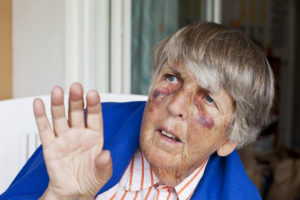 Vulnerable adults are especially likely to suffer elder neglect. Neglect may be passive or active. It may be poor care given by the caregiver (starvation, medications not being given, or other things) and it may also be allowing the elder to self-neglect, which means that they may not bathe properly or starve themselves, but it may also mean that they are refusing care that they desperately need. Passive neglect is when the caregiver wants to do right, but must leave the elderly person alone or they are not properly trained to care for that person’s needs. Active neglect is when the person knowingly neglects the elder by withholding care.
Vulnerable adults are especially likely to suffer elder neglect. Neglect may be passive or active. It may be poor care given by the caregiver (starvation, medications not being given, or other things) and it may also be allowing the elder to self-neglect, which means that they may not bathe properly or starve themselves, but it may also mean that they are refusing care that they desperately need. Passive neglect is when the caregiver wants to do right, but must leave the elderly person alone or they are not properly trained to care for that person’s needs. Active neglect is when the person knowingly neglects the elder by withholding care.
Other Elder Abuse Types
There are all types of abuse toward elderly because they are in need of help from others. Most often, they have a mental illness and depend on other people for their needs. This opens the door for not only financial exploitation and neglect, but physical abuse, mental abuse, sexual abuse, and much more. Regardless of what the abuse is, our elderly loved ones deserve to be taken care of instead of abused. The goal of S.A.F.E Elders Initiative is to raise awareness, make it easier to spot signs of abuse, and easier for our older loved ones and their family to fight back after instances of abuse.
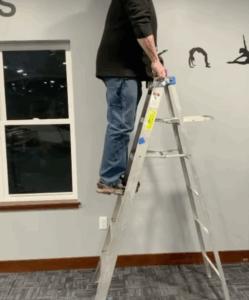 Beyond recovery, preventing future injuries is crucial. Many falls are the result of a combination of physical weakness, poor balance, unsafe environments, and medical conditions. Therefore, fall prevention starts with a holistic look at the individual’s lifestyle and surroundings. Home safety modifications can significantly reduce risks: this includes installing grab bars in the bathroom, improving lighting throughout the home, removing tripping hazards like loose rugs or clutter, and ensuring that commonly used items are within easy reach.
Beyond recovery, preventing future injuries is crucial. Many falls are the result of a combination of physical weakness, poor balance, unsafe environments, and medical conditions. Therefore, fall prevention starts with a holistic look at the individual’s lifestyle and surroundings. Home safety modifications can significantly reduce risks: this includes installing grab bars in the bathroom, improving lighting throughout the home, removing tripping hazards like loose rugs or clutter, and ensuring that commonly used items are within easy reach.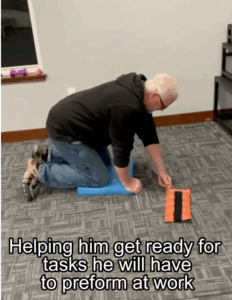 Emotional well-being also plays a role in recovery and prevention. After a fall, some elderly individuals may develop a fear of falling again, leading to reduced activity levels, which in turn increases the risk of future falls. Encouraging confidence through gradual movement, supportive therapy, and family involvement can help overcome this fear. Using assistive devices like canes or walkers when appropriate can offer added stability and reassurance. In summary, recovery from a fall in the elderly should involve immediate, targeted care like the use of gel ice packs to reduce swelling, followed by a well-rounded strategy that incorporates physical, environmental, and emotional elements to ensure both healing and future prevention.
Emotional well-being also plays a role in recovery and prevention. After a fall, some elderly individuals may develop a fear of falling again, leading to reduced activity levels, which in turn increases the risk of future falls. Encouraging confidence through gradual movement, supportive therapy, and family involvement can help overcome this fear. Using assistive devices like canes or walkers when appropriate can offer added stability and reassurance. In summary, recovery from a fall in the elderly should involve immediate, targeted care like the use of gel ice packs to reduce swelling, followed by a well-rounded strategy that incorporates physical, environmental, and emotional elements to ensure both healing and future prevention.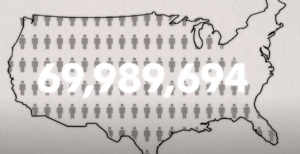 The stock market, bonds, and fixed-income securities are still widely used in retirement portfolios because they provide liquidity, diversification, and relatively predictable returns. Stocks have the potential for significant long-term growth, though they come with higher volatility, while bonds and fixed-income investments offer more stability and can provide consistent income through interest payments. While these investments are important components of many retirement strategies, they may not be enough to support the income needs of retirees, especially as inflation erodes purchasing power. This is where alternative investments, such as multifamily rental properties, come into play.
The stock market, bonds, and fixed-income securities are still widely used in retirement portfolios because they provide liquidity, diversification, and relatively predictable returns. Stocks have the potential for significant long-term growth, though they come with higher volatility, while bonds and fixed-income investments offer more stability and can provide consistent income through interest payments. While these investments are important components of many retirement strategies, they may not be enough to support the income needs of retirees, especially as inflation erodes purchasing power. This is where alternative investments, such as multifamily rental properties, come into play.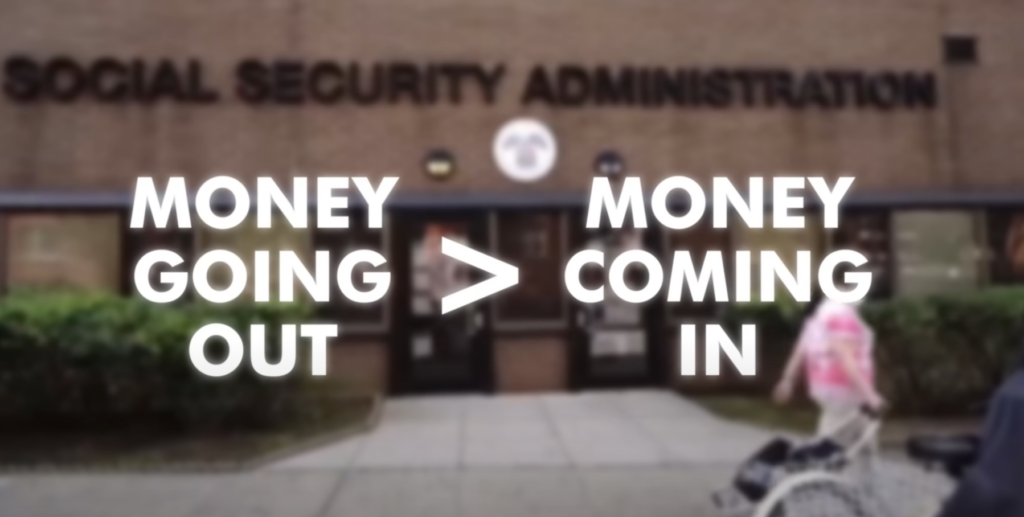
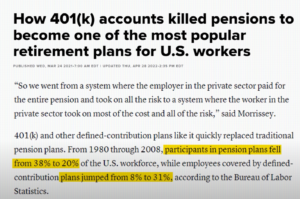 Next, a detailed financial analysis of the property is required. This includes reviewing current rent rolls, operating expenses, and any potential improvements needed to increase the property’s value or rental income. An investor must evaluate the property’s net operating income (NOI), which is the total income minus operating expenses, to determine the property’s profitability. It’s also important to calculate the capitalization rate (cap rate), which helps assess the return on investment based on the property’s income relative to its price. Ensuring that the property is priced appropriately and that it can generate positive cash flow is essential before moving forward with the investment.
Next, a detailed financial analysis of the property is required. This includes reviewing current rent rolls, operating expenses, and any potential improvements needed to increase the property’s value or rental income. An investor must evaluate the property’s net operating income (NOI), which is the total income minus operating expenses, to determine the property’s profitability. It’s also important to calculate the capitalization rate (cap rate), which helps assess the return on investment based on the property’s income relative to its price. Ensuring that the property is priced appropriately and that it can generate positive cash flow is essential before moving forward with the investment.

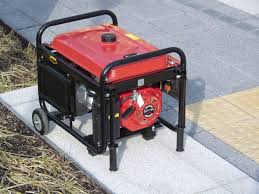
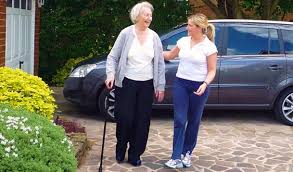 As our loved ones get older, certain things begin to happen in their lives. It is the same things that will happen to us all, eventually. Many of these things are a little difficult to deal with, such as the increased risks of falls and failing eyesight, slower reflexes, and health concerns. It isn’t always easy for the older generations to live independently because of these things, but often one of the hardest things to deal with is transportation. Many of our senior citizens have to give up their license because of their situation or have them revoked because they cannot see well enough to drive. When this happens, you can help by looking into alternative transportation methods for elderly adults.
As our loved ones get older, certain things begin to happen in their lives. It is the same things that will happen to us all, eventually. Many of these things are a little difficult to deal with, such as the increased risks of falls and failing eyesight, slower reflexes, and health concerns. It isn’t always easy for the older generations to live independently because of these things, but often one of the hardest things to deal with is transportation. Many of our senior citizens have to give up their license because of their situation or have them revoked because they cannot see well enough to drive. When this happens, you can help by looking into alternative transportation methods for elderly adults.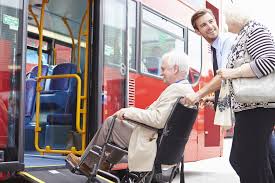 It is often hard to deal with our elderly loved one’s needs. They require about the same love as a child, but were once people who would help you through everything that you were dealing with. They may be off balance, so you have to worry that they will fall. They may have medical issues and forgetfulness which means you have to remind them to take their medications properly. Their eyesight may make it difficult for them to do the things that they want to do. Some elderly loved ones give up driving because they are fearful that something will happen if they get behind the wheel. It is perhaps the safest thing for them to do, but it does make life complicated for them and those who are there to help them. Who takes them to run small errands or to doctor visits then? Regardless of what they are dealing with, it is stressful for them to have to rely on others to help. You can make it easier by allowing them to still have a sense of independence.
It is often hard to deal with our elderly loved one’s needs. They require about the same love as a child, but were once people who would help you through everything that you were dealing with. They may be off balance, so you have to worry that they will fall. They may have medical issues and forgetfulness which means you have to remind them to take their medications properly. Their eyesight may make it difficult for them to do the things that they want to do. Some elderly loved ones give up driving because they are fearful that something will happen if they get behind the wheel. It is perhaps the safest thing for them to do, but it does make life complicated for them and those who are there to help them. Who takes them to run small errands or to doctor visits then? Regardless of what they are dealing with, it is stressful for them to have to rely on others to help. You can make it easier by allowing them to still have a sense of independence.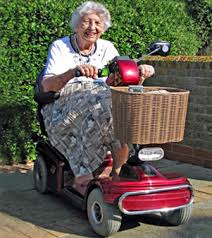 Most elderly loved ones want to stay home and maintain the life that they have always lived. This often means that you must put effort into ensuring their home is safe, but it also goes beyond that to ensuring that they can have the freedom to run errands alone. The best way to do this is to encourage them to use public transportation options, but some people simply do not want to deal with numerous bus stops and trips through the subway. Another great option for seniors who want to have the freedom to go visit neighbors are scooters, but what happens if they run out of a charge while your loved one is on the go? Luckily, there are some scooters like these for adults, that are gas powered so that your loved one can venture out to take care of small errands without having to ask for help.
Most elderly loved ones want to stay home and maintain the life that they have always lived. This often means that you must put effort into ensuring their home is safe, but it also goes beyond that to ensuring that they can have the freedom to run errands alone. The best way to do this is to encourage them to use public transportation options, but some people simply do not want to deal with numerous bus stops and trips through the subway. Another great option for seniors who want to have the freedom to go visit neighbors are scooters, but what happens if they run out of a charge while your loved one is on the go? Luckily, there are some scooters like these for adults, that are gas powered so that your loved one can venture out to take care of small errands without having to ask for help.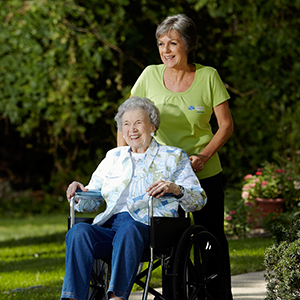 Pests are a problem for most every person during certain times of the year. Their bites are not only itchy, but they can cause pain if they get infected or turn into sores. Some pests, such as mosquitoes, can spread diseases, which have a very negative impact on children and elderly people. Therefore, it is very important that you put effort into protecting elderly against pests in the same way that you would your child.
Pests are a problem for most every person during certain times of the year. Their bites are not only itchy, but they can cause pain if they get infected or turn into sores. Some pests, such as mosquitoes, can spread diseases, which have a very negative impact on children and elderly people. Therefore, it is very important that you put effort into protecting elderly against pests in the same way that you would your child. During the summer months when most of us want to be outdoors, we end up having to deal with pests that bite and cause itching, swelling, and even pain. The
During the summer months when most of us want to be outdoors, we end up having to deal with pests that bite and cause itching, swelling, and even pain. The 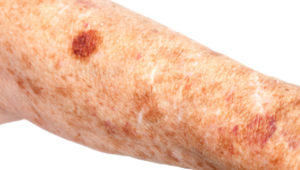 A lot of times, chemicals are used to help prevent bites from the most common pests. They are effective, but a lot of them can cause skin irritation and breathing problems for elderly family members. Therefore, if you must use repellent, you may want to consider more natural solutions. Sprays that use essential oils are best, but they can let a few bugs bite still. This is why most people agree that the best way to prevent bites is to try to eliminate as many insects as possible from around areas where your loved one will be. The simplest way to do this is to use propane mosquito traps since they treat an entire yard without the use of chemicals. You can learn more about bug prevention using traps and other natural methods on propanemosquitotrap.com. Its also worth exploring proactive measures to eliminate a population of mosquitos rather than defensive with sprays and zappers.
A lot of times, chemicals are used to help prevent bites from the most common pests. They are effective, but a lot of them can cause skin irritation and breathing problems for elderly family members. Therefore, if you must use repellent, you may want to consider more natural solutions. Sprays that use essential oils are best, but they can let a few bugs bite still. This is why most people agree that the best way to prevent bites is to try to eliminate as many insects as possible from around areas where your loved one will be. The simplest way to do this is to use propane mosquito traps since they treat an entire yard without the use of chemicals. You can learn more about bug prevention using traps and other natural methods on propanemosquitotrap.com. Its also worth exploring proactive measures to eliminate a population of mosquitos rather than defensive with sprays and zappers. Taking care of an elderly loved one is perhaps one of the hardest things you will ever have to do. Not only are they frail and often short when things do not go their way, their bodies are more sensitive to a lot of things. A simple UTI could be a minor inconvenience for you, but for them, it can be something that throws off not only their body, but their mind. The same can be said for any minor vitamin deficiency. Therefore, they rely on healthy living through steady nutrients and it is something we could all learn from doing.
Taking care of an elderly loved one is perhaps one of the hardest things you will ever have to do. Not only are they frail and often short when things do not go their way, their bodies are more sensitive to a lot of things. A simple UTI could be a minor inconvenience for you, but for them, it can be something that throws off not only their body, but their mind. The same can be said for any minor vitamin deficiency. Therefore, they rely on healthy living through steady nutrients and it is something we could all learn from doing. Today, we hear a lot about vitamin supplements. You can get anything from vitamins, to minerals, herbals, enzymes, and amino acids, as well as a variety of other things. Each of these supplements, can help you feel better in ways. For instance, if you take melatonin, you should be able to achieve a more restful sleep. Garlic pills can help your blood. Fish oils can help a variety of other things. Each supplement has a purpose. Overall, most supplements are safe to take. The vitamins A, E, D, C, and folic acid supplements can help you ward off diseases. However, it can become unsafe for you if you take too much. The same is true for potassium. Your body requires a certain amount of it. Too much can cause you issues and too little can also be deadly.
Today, we hear a lot about vitamin supplements. You can get anything from vitamins, to minerals, herbals, enzymes, and amino acids, as well as a variety of other things. Each of these supplements, can help you feel better in ways. For instance, if you take melatonin, you should be able to achieve a more restful sleep. Garlic pills can help your blood. Fish oils can help a variety of other things. Each supplement has a purpose. Overall, most supplements are safe to take. The vitamins A, E, D, C, and folic acid supplements can help you ward off diseases. However, it can become unsafe for you if you take too much. The same is true for potassium. Your body requires a certain amount of it. Too much can cause you issues and too little can also be deadly. One thing you have to remember before giving an elderly loved one supplements is that less is more. Most people can get enough vitamins if they have a healthy diet, but there are situations where they may need a little extra help. For instance, a lot of cereal contains the vitamin B12. This is great, but many elders cannot absorb it the way that they did when they were younger. In order to keep their blood and nerves healthy, their doctor may recommend that they take a supplement. Calcium is also in a lot of foods, but elders need more. If their bones are growing weaker, their doctor may suggest a supplement.
One thing you have to remember before giving an elderly loved one supplements is that less is more. Most people can get enough vitamins if they have a healthy diet, but there are situations where they may need a little extra help. For instance, a lot of cereal contains the vitamin B12. This is great, but many elders cannot absorb it the way that they did when they were younger. In order to keep their blood and nerves healthy, their doctor may recommend that they take a supplement. Calcium is also in a lot of foods, but elders need more. If their bones are growing weaker, their doctor may suggest a supplement.